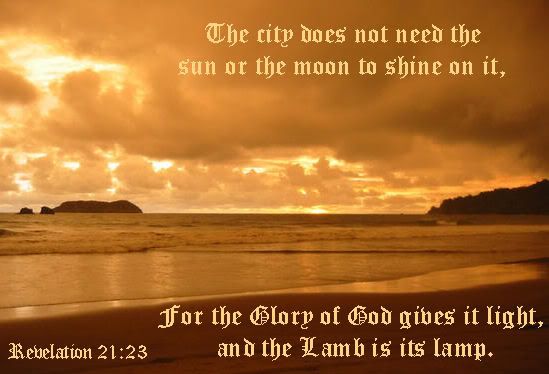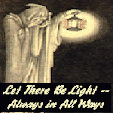Statement of Faith...
I tend to embrace the position taken by the good people at Christian Courier.com about that..."If one simply believes only the truth, and obeys only the truth, he will be a Christian only – standing quite apart from the creeds of men and denominational bodies which have no sanction in the New Testament."
Of course, one needs to know the Truth in order to be able to do just that - and this is exactly what this "brother blog" or "sister site" to The Luminous Blog is all about!
+++
The music you hear is located in the sidebar,
and not emanating from the above playlist/music player.
This site is best viewec with Mozilla Firefox.



















2 Comments:
For the record ~ what this "abstinence" of a creed business is all about...!
=========================
Where Is Your Statement of Faith?
Every day this web site receives thousands of visits from people who are interested, to one degree or another, in the theme of religion. Some are very hostile, looking for something at which to nit-pick. That is fine; we welcome them. They may even incidentally learn something.
By far, however, our clientele are sincere religious people, out of a variety of backgrounds – liberal, conservative, cultic, mystic, etc. – who are searching for answers to serious questions that trouble them. Not infrequently they are thrilled and/or intrigued by an article, and they want to know more about us. One of the inquiries commonly received, therefore, is this: “What is your creed?” or “What is your statement of faith?” They search for such a “statement” but come away not finding any such creed.
Allow us a moment to explain. It is not that we are ashamed of what we believe, or that we seek to be duplicitous. If you survey a reasonable sampling of our material you will discover that we are very plain, and firm, in presenting the convictions we hold. We have no desire to veil our beliefs. Such would be antagonistic to the very spirit of Christianity.
Rather, we believe it to be a very dangerous thing for men to form propositional, creedal statements which tend to crystallize every aspect of Christian faith. We have several principal objections to the “creed” mentality.
There simply is no New Testament authority for such. One may search from Genesis to Revelation and he will not discover a set of propositional dogma which men are obligated to blindly endorse. As one studies the Scriptures diligently (applying fundamental principles of interpretation) and personally, he will be able to reach his own conclusions as to what one is required to believe, practice, and teach if he is to be identified with Jesus Christ – and that without being coerced by others.
No person has the right to force others into doctrinal submission. Granted there are threshold, fundamental truths to which one must subscribe if he is to be identified as a Christian. Beyond this, however, there is a lifetime of study, learning, and growth to be achieved.
History has demonstrated time and time again that creeds do not unify; rather they divide. They thus frustrate the very purpose for which Jesus so earnestly prayed (John 17:20-23).
One of the earliest known “creeds” is the so-called “Apostles’ Creed” (used by the Roman Catholic Church). One prominent authority notes that this document “is not of apostolic origin.” Rather, its title is found initially around A.D. 390; subsequently the legend arose that it was formulated by the apostles of Christ (Frank Cross, Ed., The Oxford Dictionary of the Christian Church, London: Oxford University Press, 1958, pp. 72-73). Creeds are of post-apostolic origin.
Accordingly, since there is no formal creed in the biblical records, and as there is no commission to any man, or set of men, to construct one, we prefer to respect that circumstance. We encourage our readers to simply study our articles. Examine them carefully to see whether the things presented are so or not (Acts 17:11). If you have questions, you may submit them. As much as we are physically able, we will try to answer them or direct you to a source for study.
If one simply believes only the truth, and obeys only the truth, he will be a Christian only – standing quite apart from the creeds of men and denominational bodies which have no sanction in the New Testament.
Copyright © 1998-2005 by Christian Courier Publications
You may use content from our web site for your personal, not-for-profit purposes.
Please see our Creative Commons License for more details.
Hmm... maybe I should get myself a Creative Commons License as well...
I have been noticing these thingies "with some rights reserved" only...
Post a Comment
<< Home